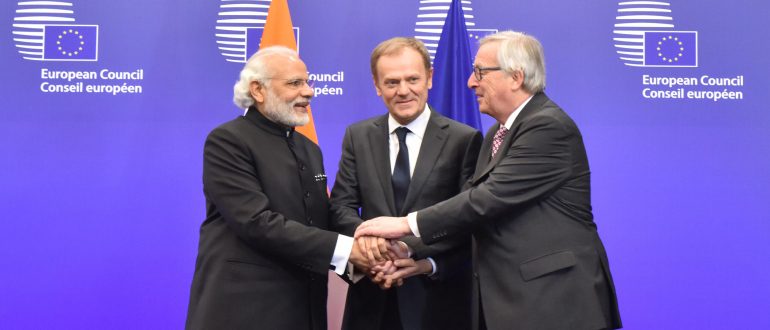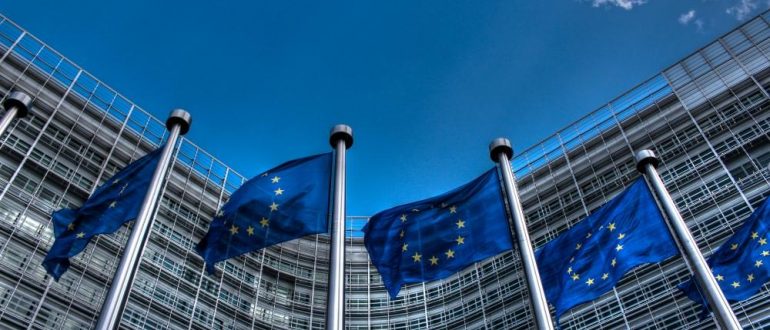Facing Changing Realities in the Arab World: Lessons for the West
As events of the Arab Spring are still unfolding, changing or even escalating two years after the initial start of the revolutions, the West can still take a lessons learned approach and should critically evaluate how it portrays the uprisings, interacts with authoritarian regimes and civil society and how it addresses contested political issues such as Palestine.
The Arab Spring did not only dramatically alter the political and social landscape of the Middle East, it also served as a grim reminder that change is often a long, intricate and difficult process. What is termed as an Arab ‘Spring’ in the western media is often a very bloody affair on the ground; groups violently opposing each other, civil rights being circumvented and young revolutionaries pushed to the side. The events taking place in the Middle East might be spring-like in a philosophical sense of awakening minds and thoughts, but the reality is usually a harsh wake-up call to the realities of politics. What complicates the issue even more is the limited understanding in the West of the key players and concepts. Concerned countries such as Tunisia, Egypt, Libya, Syria or Bahrain cannot be grouped into simple categories, such as “Muslim states”, “authoritarian leaders” or “an active Muslim Brotherhood” since all these concepts differ vary drastically on the ground. Each country has its own, unique history; forms of political Islam are incredibly diverse in the region as well as the relation the Muslim Brotherhood has to the key actors.
Therefore, a first step for western politicians and especially the media would be to draw a much more nuanced picture of the situation on the ground. What applies to Egypt in terms of analyses might be completely misplaced in the context of Bahrain. In addition, light needs to be shed on other actors from civil society, not only the Muslim Brotherhood which is almost turned into a caricature in the western media and has developed into a catch-all slogan for “Islamists”. It is incredibly difficult for an uninformed public to develop a comprehensive understanding of events in the Middle East, especially if the media applies the same framework in each conflict, without taking into account regional differences, historical developments or religious variations. As a result, the western audience perceives events in a much narrower frame than it should and often has to deal with misrepresentations of critical incidents. Thus, our media must invest more heavily in thorough foreign policy expertise, by hiring professionals of Arab history and society, consulting civil society and drawing attention to the different challenges of each country’s situation.
For political officials, the Arab Spring should also offer a pause for thought. In a region which was usually seen as very static, western politicians placed their hopes and policies on authoritarian leaders who often had little regard for their own societies. Yet in the overall framework of a “stable” region, politicians tended to overlook these serious shortcomings in order not to endanger successful security partnerships, secured trade routes or support for their own policies. In this case, politicians should have taken a lesson from fundamental economics, where it is considered a bad plan if you have all your investments tied up to one project. For if your initial plan fails, then you are left with little to no alternative or course of action. This has become damningly evident during the Arab Spring, where political and intelligence officials were suddenly left with no contacts after the old elite had broken away. Here, the lesson should be obvious: It should be imperative that leaders make an effort to develop good relations with a wide range of actors and not only the political elite. In peace and conflict resolution theories, many scholars put the emphasis on the mid-level structures of society since these actors have contact to the less-influential segments of the public as well as the high-influential actors. Instead of only focusing on an elite which is often corrupt and does not answer to the public, it is necessary to create connections to and relationships with individuals and groups from civil society.
As a result, western governments will not only have more insight into internal developments of the country but they can also offer more support for the further development of the civil society in question. How far this proposal is from being turned into reality can be seen in the case of Bahrain, where civil society and especially the Shia population have been trying for a long time to challenge the status quo, yet have been met with violence and oppression. In Western media and from politicians, there is largely silence on the issue and no real connection to the civil actors is made. Yet in the long run, civil society should form an integral piece of policy planning. An example could be a strengthening of support for the Ukrainian public which is living under ‘Europe’s last dictatorial regime’ as the media commonly refers to it, or a more credible commitment to the issue of human rights in general. As the Arab Spring has shown, societies and regimes are far from static and immortal, they can be changed and revised under the right circumstances so the West needs to be better prepared for such changes. Especially with the fast-paced development of technology, individuals and societies will increasingly interact with each other and gain more information from the outside which can then be distributed further and used.
Next to an improvement in reporting on the Middle East and a strengthening of relations to civil societies, the U.S and Europe should also make a genuine attempt in addressing the question of Palestine. The Palestinian/Israeli conflict can be seen as the Achilles’ heel of western governments. Probably no other issue has cost them as much credibility and trust as the Israeli occupation and the ongoing political sidestepping of the issue. Due to various reasons (relationship to the state of Israel, Israel as a democracy or historical legacy), the U.S. and European countries have a difficult time in finding a joint position on Palestine or even finding their own stance on the subject. Yet without a serious attempt at resolution, the actions or speeches of western politicians will not be credible in the eyes of large parts of the Arab world because of the discrepancy between rhetoric and the situation on the ground in the West Bank or Gaza. An unconditional support for one party of the conflict, be it either only for Israel or Palestine, can only be detrimental in the long run because both sides need to be questioned and challenged on their conduct. Only then can an authentic and hopefully more objective discussion take place which in turn has the potential to change the perception in the Middle East of the West and its politics. This is also crucial so that actors from civil societies do not have to constantly justify their relationship to western actors, be it politicians or NGOs. If the West is serious about an involvement in the region, it needs to take a close look at its previous policies in order to appear as a credible and legitimate partner.
Overall, the events of the Arab Spring can and should have a great impact on how western governments conduct their political strategies. Even though events are still on-going and there is no certain outcome in places such as Egypt or Syria, the courage and determination shown by the public in these countries should not go unnoticed or unappreciated, since they hold valuable lessons for the future. Our understanding of this region of the world, of the religion and actors that characterize it, has to improve dramatically to prevent us from snap judgments and decisions. Second, a higher emphasis has to be put on the well-being and support of civil societies around the globe. Governments should realize that the certainty of ‘stable’ regimes is an illusion and that sound policies always take a broad segment of the population into account. And lastly, the question of Palestine needs to be addressed sooner or later, even though it is a complicated and emotional issue. Yet if western governments are serious about their involvement in the Middle East, they cannot ignore the elephant in the room for much longer. So even though the fighting on the ground is still ongoing, the West has to make sure that the legacy of the Arab Spring positively touches and changes our way of politics.
Sarah Wagner studies Political Science and English at the University of Trier, Germany, and is currently working on her graduate paper on civil-military relations under President Obama.



